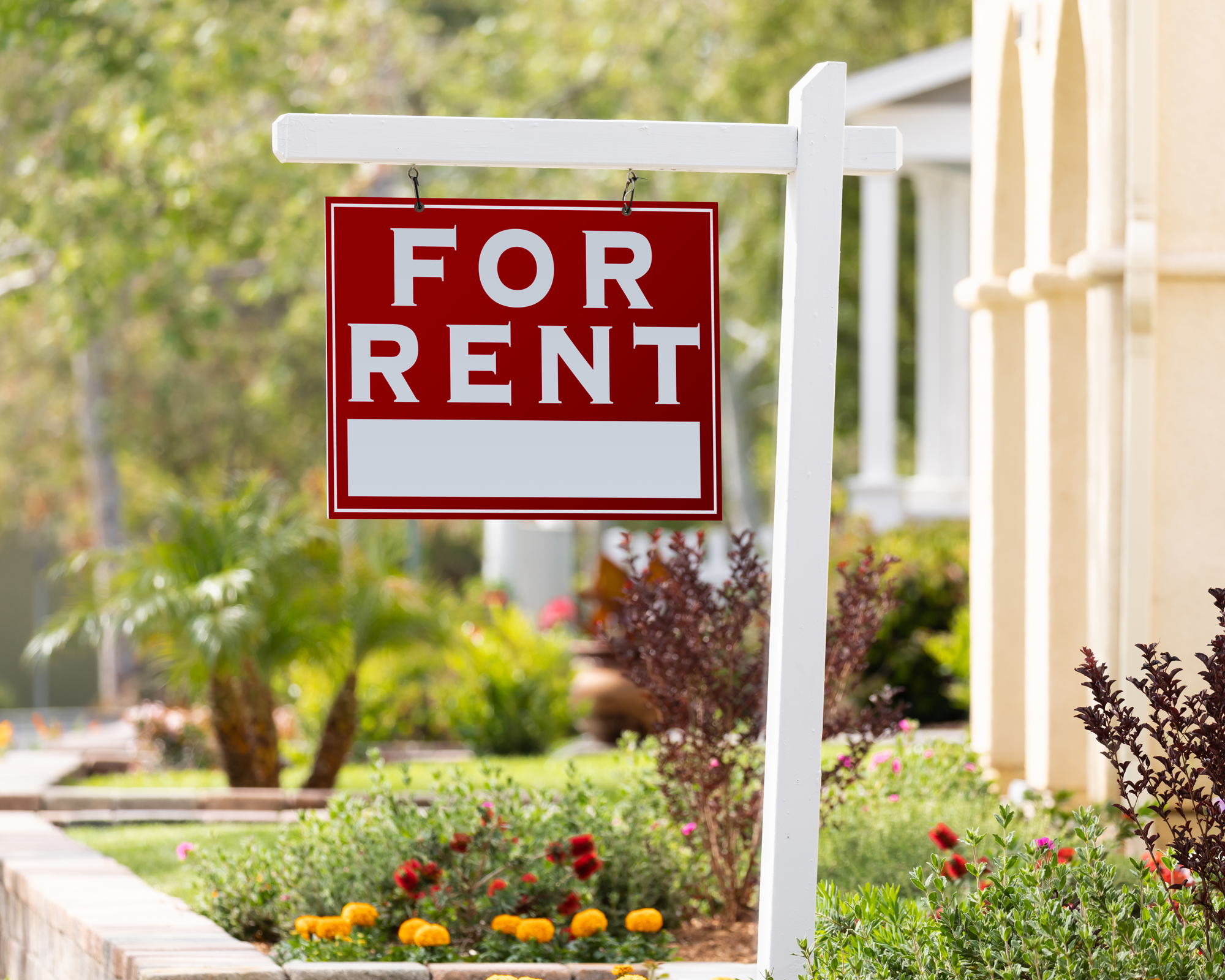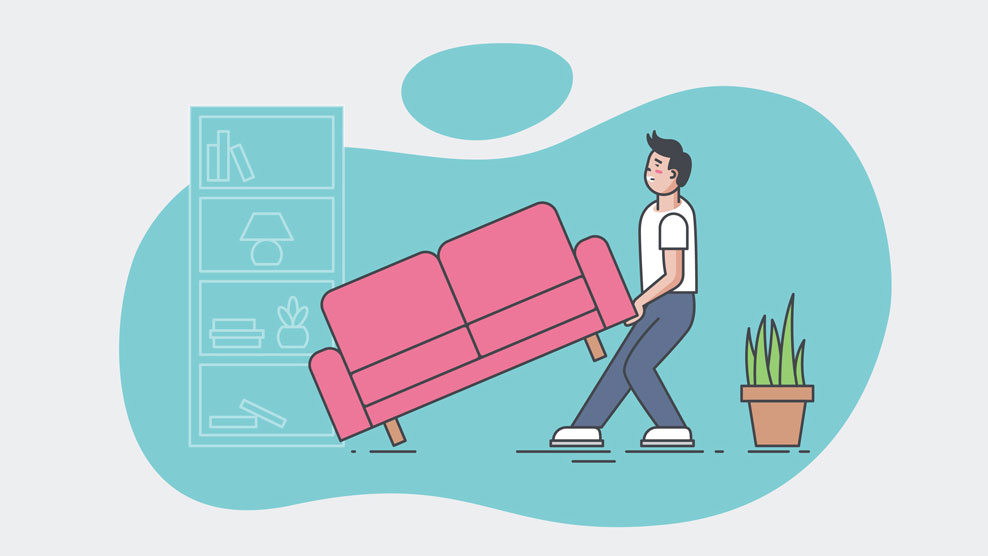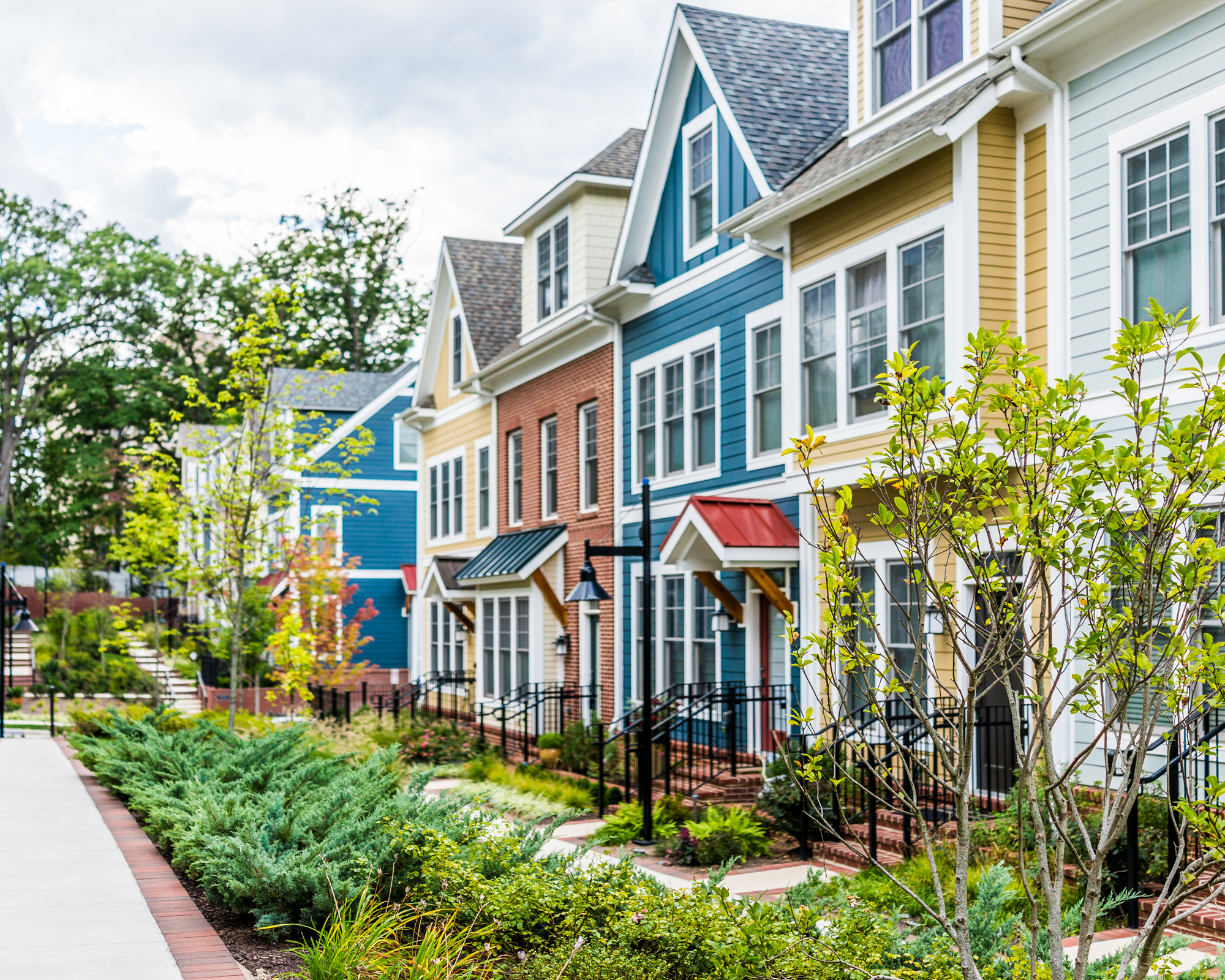How to rent a house or apartment successfully: first rental or not
Whether it's your first time as a tenant or not, knowing the ins and outs of how to rent a house or apartment is a must for a smooth ride.
Anna K. Cottrell

Looking to rent an apartment or house? Renting is a fact of life for a huge number of us, with many people now expecting to rent for life, whether through choice or being unable to buy a home. The rental market is fast-paced and requires you to be able to make quick, well-informed decisions.
So, in order to choose a property you'll be happy living in – and, most importantly, staying in – arm yourself with the knowledge you need to take you through all the stages of the renting process. From looking for and viewing a rental to contracts and disputes, this real estate expert-led advice will help you find your dream rental quickly and efficiently.
1. Choose your location
You may already have a pretty good idea of where you want to live, but if you’re flexible on location, consider what your priorities are. Is it important to be near family and friends, have a speedy commute to work, or a short walk to a train station or bus stop? Do you want shops and cafes on the doorstep, or would you prefer somewhere quiet to come back to at the end of the day?
Don’t feel forced to stay in your current neighborhood just for the sake of it, as by broadening your horizons you may well discover that another suits your needs and lifestyle much better.
2. Have all your paperwork ready
There's no denying that the rental market is fast-paced, and you'll need to learn to move quickly. If you like a rental you've just viewed, you may well need to make a move to start the lease process that day. So, Amy Mueller of Apartment Advisor recommends making sure 'you have all of your paperwork in order before you even start inquiring on properties. This includes:
- Photo ID
- Social Security
- Proof of Income, e.g. bank statements
- Rental history (list of properties you have lived/landlords)
- Employment history or resume
- Application fee
- First & last month’s rent and security deposit

3. Start your search
Once you’ve pinpointed your desired location and prepared your documents you’re ready to kick off your property search. Whether you go through a major online search portal or a local real estate agent, be sure that they offer as much of an up-to-date digital experience as possible. Michael Lucarelli CEO of RentSpree, urges renters to 'work with realtors that are offering a modern, digital-driven home search experience.'
A digital-first realtor will be able to offer a range of streamlined services beyond just the digital search for suitable properties. Think an online application, online screening, e-sign lease, and online rental payment processes.
Get small space home decor ideas, celeb inspiration, DIY tips and more, straight to your inbox!
It is true that smaller, more local realtors may not be able to offer all of these, but if you have the choice, go with those that do.
4. Know what you can afford
This may sound obvious, but knowing what you can actually afford is crucial if you want to save yourself the time and effort of viewing apartments or homes you won't comfortably be able to afford. Mueller recommends using the many websites that now offer 'a rent calculator that can help you calculate your rent-to-income ratio.'
Bear in mind that the rent is not your only expense. Always check what local municipal taxes are as these will add onto your rental costs.
Also, be aware that negotiating the price of a rental is completely normal. For example, if the landlord is in a hurry to find a tenant and you're prepared to forego that paint job in the living room, you may well be able to negotiate a lower rent.
5. Know what a fair rental price is
Do your homework! Mueller recommends researching rental prices so that 'you know what is “fair” rent for the unit size, location and amenities offered.' Beware of rentals that are either significantly below the 'fair' price for your area as there's likely something wrong with the rental. Conversely, don't bother with an unrealistically high-priced rental as someone who is trying to charge an unfair amount on a rental is highly unlikely to be a good landlord.
6. Check if there are any extra fees
Be aware that depending on the type of property you're renting in there may be extra monthly fees. Lauren Reynolds, Realtor with Compass in Fairfield County, Connecticut, warns renters that 'some properties charge incredibly high monthly fees that cover everything except cable and internet, while other fees only cover maintenance.'
7. Be aware of credit score checks
Reynolds advises that 'The landlord is going to want to see your credit score, so be aware of what it currently is. A bad credit score can disqualify you from renting, or may require you to have a guarantor (or a person who has good credit that will guarantee rent will be paid on time).'
However, just because landlords need to know your credit score doesn't mean that you have to harm yours by applying for a rental. Lucarelli advises 'when looking for rental applications, apply to those that perform soft credit pulls, as opposed to hard inquiries which can knock off points for those with a short credit history. To ensure your creditworthiness shines through in your application, be wary of how your credit is being looked at in the process.'
8. Choose a good real estate agent
- Word of mouth – or, these days, online reviews – is the best recommendation. Check or ask if the agency is a member of a trade body. In the USA, this is first and foremost the NRA, the National Association of Realtors.
- A reputable agent should inform you straight away of any costs other than rent. The amount (if any) that a tenant will pay in fees to the realtor will vary depending on local custom. A real estate agent should be upfront about how much they will charge if you sign for a rental with them.
- Avoid agents like the plague who want to charge you for property details, are poorly organized, and ask for money upfront.
- Find out what to ask a letting agent about a property you are interested in before you proceed.
9. Look out for a good private landlord
Leonard Ang, the CEO of iProperty Management, advises renters to 'investigate your landlord or property management company as much as you can beforehand. They generally treat their tenants consistently, meaning that if there are problems, there will be stories about it if you know where to look.' There are websites such as Rate My Landlord and WYL that offer landlord reviews.
10. Consider furnished vs unfurnished rentals
Whether you go for a furnished or unfurnished property is a matter of personal preference and convenience. A furnished home will suit you if you don’t have furniture of your own and will save you the time, hassle and expense of sourcing and buying it.
On the downside side, it might be slightly pricier as the landlord will have to pay to kit it out, and your deposit may be higher. Unfurnished is ideal if you already have your own stuff, and you won’t be liable for wear, tear, and damage for items belonging to the landlord. It will also leave you free to personalize your new pad to your own taste.

11. Keep your eyes open when viewing
Arrange to view properties for the first time during daylight hours, when any flaws are more apparent, and always tell someone where you’re going. If you're having a virtual viewing, ensure it's thorough and that they don't spend too short a time filming a room. We would also recommend not just going off a virtual viewing.
Check that the décor’s in decent condition, ask exactly what’s included if the property is furnished, make sure that the heating, lights and faucets work, that windows open, the toilet flushes and so on.
Assess room sizes, layout and amount of light coming in, and whether there’s much noise from neighbors or traffic. If the current tenants are in, find out what they like about their home, and whether any issues or repairs have been dealt with promptly.
Reynolds also reminds renters to 'check the water pressure: there's nothing worse than moving into an apartment and realizing that the shower pressure is a light drizzle.'
She also urges renters to always measure potential rentals: 'Measure rooms, doorways, walls. You want to make sure that a) your furniture can fit through a doorway or up a stairwell, and b) that your furniture will fit in a room! I always take a laser tape measure with me so that my clients have the exact dimensions of each room.'
Use our guide to viewing a rental property to ensure you check all the essentials.
12. Ask the landlord the right questions
It's very important to ask the right questions before you sign your rental contract to avoid misunderstandings and problems later on. Jonathan Faccone, a full-time real estate investor and the Managing Member of Halo Homebuyers, highly recommends asking ' detailed questions from the beginning like what utilities are
covered in the rent, who is responsible for maintaining the lawn, and
shoveling the snow. These details should be mentioned in the lease to
prevent miscommunications and potential disputes.'
13. Make sure you understand the contract
Before you sign your rental contract, understand what type of rental lease agreement you are signing. In the US, the vast majority of rental lease agreements are either fixed-term leases or automatic renewal leases. Fixed-term leases (say, of six months or one year) are best if you know how long you want to stay somewhere. If you want to stay beyond the end of the lease, you can re-sign the contract. An automatic renewal lease will save you the hassle of re-signing and can have a renewal period of as little as one month, which is useful if you're not sure how long you want to stay.
Bear in mind that the majority of standard rental lease agreements are fixed-term.

14. Get clued up on your rental deposit
Depending on where you decide to rent, the security deposit amount will vary. Some states, but not all, cap the amount that can be charged as a security deposit on a rental, so always check what the local laws are. Typically, a security deposit amount is between one and three months' rent. A landlord is not necessarily required to keep said deposit in a separate bank account (again, local rules vary), but it's always a good sign if they will do so to protect your deposit.

15. Check notice periods
The notice period given by a landlord to a tenant is typically one rental period or one month if you're on a month-by-month contract. You also should always check local rules and what your contract says before signing.
16. Know who you can contact for advice
Communication is key to resolving any issues as quickly as possible. Report problems with the property to the landlord or managing agent as soon as you’re aware of them, and don’t refuse access for inspection or repairs – your tenancy agreement will give details of the notice your landlord needs to give you, usually 24 or 48 hours. If there is a dispute you can’t resolve, seek advice from a solicitor, or your local authority’s housing department.
In the US, check your local tenant rights on the Department. of Housing and Urban Development website. Finding out how to be a good tenant in advance will ensure you're holding up your end of the bargain.
17. Navigate renting a shared house
When moving into a shared house, meet the other tenants first, decide how rent and bills will be apportioned, and set down some ground rules, including establishing a cleaning rota and whether overnight guests are allowed.
It's very important to document how rent is split in writing between all renters. As far as the landlord is concerned, everyone who has signed the lease is 'jointly and severally' liable for the rent. This basically means that the landlord can demand the full rent from any of the tenants sharing a home.
In some US states and cities, a landlord can designate one tenant as 'master tenant', effectively giving them many of the landlord's powers, including eviction for not paying rent. Check if this is a possibility where you're planning on renting.

18. Get renter's insurance
Some, though not all landlords require tenants to take out renter's insurance, but even if yours doesn't, it's still a good idea to consider taking out insurance that will cover the loss, damage, or theft of your belongings from a rental. It won't cover damage to the rentals itself.
19. Document everything
Disputes arise usually when landlord and tenant lose track of who did what and when, so it's a very good idea to keep track of exactly what was discussed/promised and so on. This refers especially to any damage to property and repairs, but Leonard Ang strongly advises to 'document everything, from the state of your apartment when you move in and move out, to all of the communications between you and your landlord to which individual roommates contributed to rent.'
Take plenty of pictures before moving in and complete a moving-in checklist or inventory. If your landlord is providing you with an inventory, have a thorough read-through and make sure to record anything that isn't already in there. Something as simple as a tear in the carpet that wasn't recorded can affect your deposit.
20. Could you buy instead of renting?
Could finding a mortgage deal prove better for your finances than paying out rent every month? Reynolds advises a cautious approach. Although homeownership continues to be a lifestyle dream for many, Reynolds reminds all would-be homeowners that 'homeownership costs are significant. Beyond the down payment and monthly mortgage costs, there's also the cost of upkeep and fees many don't think of.
'For example, if you live in a rental property, you don't have to worry about buying a new appliance if an old one conks out. But as a homeowner, you're on the hook for that new fridge, washer, or oven. And if you move within five years, you've just paid a large sum for something you're unable (in most instances) to take with you.'
So, Reynolds's golden rule is: 'Only buy if you're planning to stick around for at least five years. If buyers feel confident they’re going to be in one place for years on end, they should go for it. They will likely reap the benefits of the money they've put into their home down the line.'